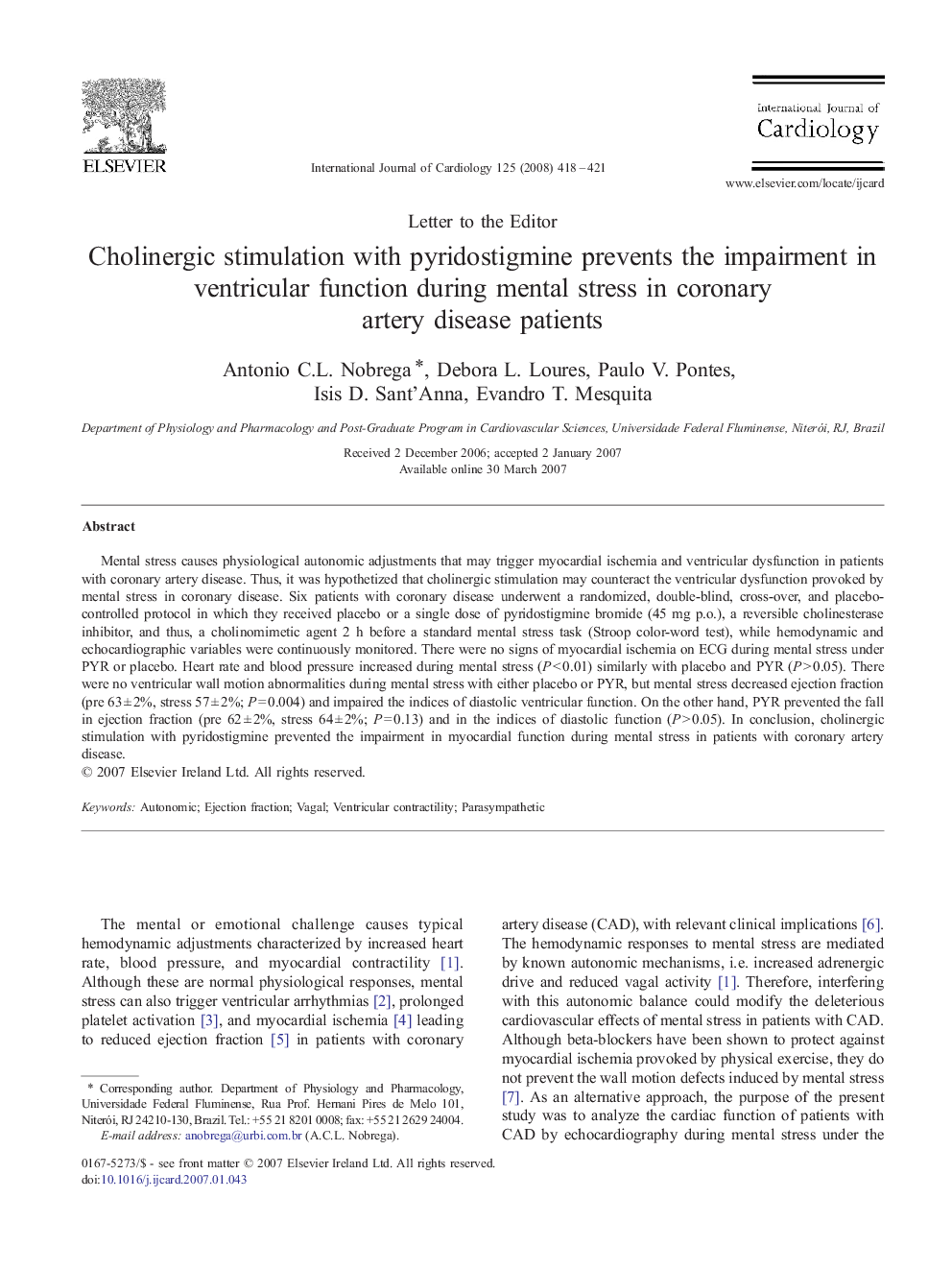| Article ID | Journal | Published Year | Pages | File Type |
|---|---|---|---|---|
| 2934629 | International Journal of Cardiology | 2008 | 4 Pages |
Mental stress causes physiological autonomic adjustments that may trigger myocardial ischemia and ventricular dysfunction in patients with coronary artery disease. Thus, it was hypothetized that cholinergic stimulation may counteract the ventricular dysfunction provoked by mental stress in coronary disease. Six patients with coronary disease underwent a randomized, double-blind, cross-over, and placebo-controlled protocol in which they received placebo or a single dose of pyridostigmine bromide (45 mg p.o.), a reversible cholinesterase inhibitor, and thus, a cholinomimetic agent 2 h before a standard mental stress task (Stroop color-word test), while hemodynamic and echocardiographic variables were continuously monitored. There were no signs of myocardial ischemia on ECG during mental stress under PYR or placebo. Heart rate and blood pressure increased during mental stress (P < 0.01) similarly with placebo and PYR (P > 0.05). There were no ventricular wall motion abnormalities during mental stress with either placebo or PYR, but mental stress decreased ejection fraction (pre 63 ± 2%, stress 57 ± 2%; P = 0.004) and impaired the indices of diastolic ventricular function. On the other hand, PYR prevented the fall in ejection fraction (pre 62 ± 2%, stress 64 ± 2%; P = 0.13) and in the indices of diastolic function (P > 0.05). In conclusion, cholinergic stimulation with pyridostigmine prevented the impairment in myocardial function during mental stress in patients with coronary artery disease.
